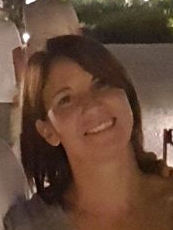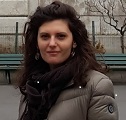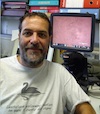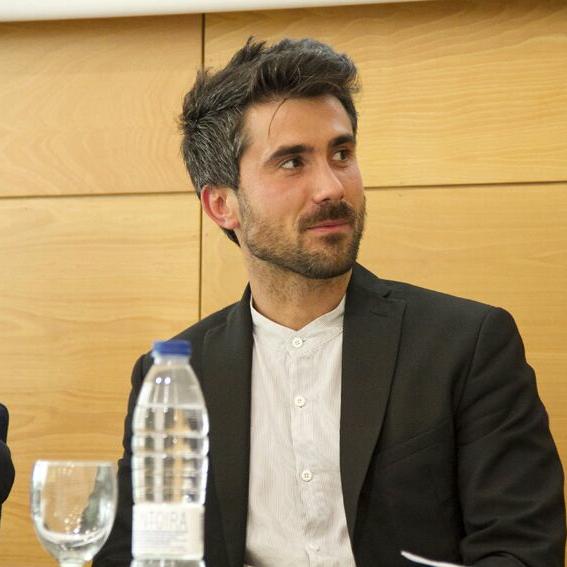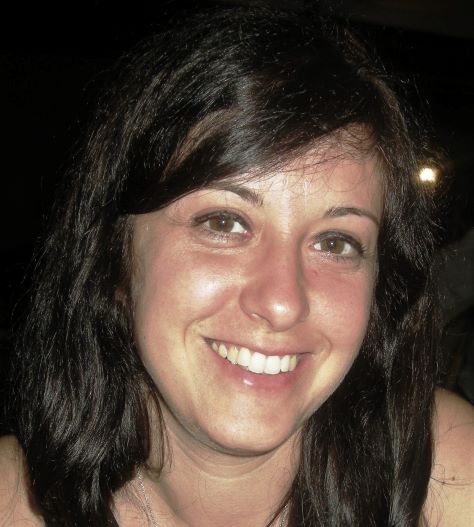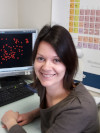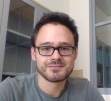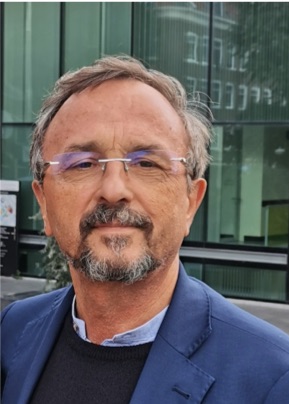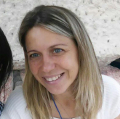Studying at the University of Verona
Here you can find information on the organisational aspects of the Programme, lecture timetables, learning activities and useful contact details for your time at the University, from enrolment to graduation.
Academic calendar
The academic calendar shows the deadlines and scheduled events that are relevant to students, teaching and technical-administrative staff of the University. Public holidays and University closures are also indicated. The academic year normally begins on 1 October each year and ends on 30 September of the following year.
Course calendar
The Academic Calendar sets out the degree programme lecture and exam timetables, as well as the relevant university closure dates..
| Period | From | To |
|---|---|---|
| I semestre | Oct 1, 2018 | Jan 31, 2019 |
| II semestre | Mar 4, 2019 | Jun 14, 2019 |
| Session | From | To |
|---|---|---|
| Sessione invernale d'esame | Feb 1, 2019 | Feb 28, 2019 |
| Sessione estiva d'esame | Jun 17, 2019 | Jul 31, 2019 |
| Sessione autunnale d'esame | Sep 2, 2019 | Sep 30, 2019 |
| Session | From | To |
|---|---|---|
| Sessione estiva | Jul 16, 2019 | Jul 16, 2019 |
| Sessione autunnale | Nov 19, 2019 | Nov 19, 2019 |
| Sessione invernale | Mar 11, 2020 | Mar 11, 2020 |
| Period | From | To |
|---|---|---|
| Sospensione attività didattica | Nov 2, 2018 | Nov 3, 2018 |
| Vacanze di Natale | Dec 24, 2018 | Jan 6, 2019 |
| Vacanze di Pasqua | Apr 19, 2019 | Apr 28, 2019 |
| Vacanze estive | Aug 5, 2019 | Aug 18, 2019 |
Exam calendar
Exam dates and rounds are managed by the relevant Science and Engineering Teaching and Student Services Unit.
To view all the exam sessions available, please use the Exam dashboard on ESSE3.
If you forgot your login details or have problems logging in, please contact the relevant IT HelpDesk, or check the login details recovery web page.
Should you have any doubts or questions, please check the Enrollment FAQs
Academic staff
 rossana.capuani@univr.it
rossana.capuani@univr.it
 vittoria.cozza@univr.it
vittoria.cozza@univr.it
 luca.pasetto@univr.it
luca.pasetto@univr.it
 claudio.tomazzoli@univr.it
claudio.tomazzoli@univr.it
 franco.zivcovich@univr.it
franco.zivcovich@univr.it
Study Plan
The Study Plan includes all modules, teaching and learning activities that each student will need to undertake during their time at the University.
Please select your Study Plan based on your enrollment year.
1° Year
| Modules | Credits | TAF | SSD |
|---|
2° Year activated in the A.Y. 2019/2020
| Modules | Credits | TAF | SSD |
|---|
3° Year activated in the A.Y. 2020/2021
| Modules | Credits | TAF | SSD |
|---|
Un insegnamento a scelta1 module to be chosen among the following| Modules | Credits | TAF | SSD |
|---|
| Modules | Credits | TAF | SSD |
|---|
| Modules | Credits | TAF | SSD |
|---|
Un insegnamento a scelta1 module to be chosen among the followingLegend | Type of training activity (TTA)
TAF (Type of Educational Activity) All courses and activities are classified into different types of educational activities, indicated by a letter.
Type D and Type F activities
Modules not yet included
Model organism in biotechnology research (2020/2021)
Teaching code
4S008770
Teacher
Coordinator
Credits
6
Language
Italian
Scientific Disciplinary Sector (SSD)
BIO/06 - COMPARATIVE ANATOMY AND CYTOLOGY
Period
I semestre dal Oct 1, 2020 al Jan 29, 2021.
Learning outcomes
L’insegnamento si propone di fornire le basi concettuali e metodologiche della biologia e la genetica dei principali organismi modello, in relazione al loro impiego in ricerche biologiche e biotecnologiche. Verrà definito il ruolo dei singoli modelli in epoca post-genomica, con particolare attenzione alle metodiche e agli strumenti disponibili per la manipolazione genica. Verrà approfondita inoltre l’analisi di vari organismi modello in ricerche di base e in applicazioni di tipo biotecnologico in ambito biomedico, farmacologico e ambientale.
Program
Descrizione delle caratteristiche generali degli organismi modello. Inquadramento filogenetico e comparazione tra gli organismi modello maggiormente utilizzati nella ricerca biologica e Biotecnologica come ad esempio i lieviti S. cerevisiae e S. pompe, i protisti e Tetrahymena e Dictyostelium, l'alga Chlamydomonas, la pianta A. thaliana, il nematode C. elegans, l’insetto Drosophila, il pesce D. rerio, l’anfibio Xenopus, l'uccello G. gallus, il mammifero M. musculus. Analisi del ciclo vitale e riproduttivo dei principali organismi modello. Analisi delle caratteristiche dei singoli organismi modello in relazione al loro impiego in studi genetici e ricerche biologiche e biotecnologiche. Analisi degli strumenti genetici e molecolari e loro applicabilità nei diversi organismi modello sia nell’ambito della ricerca di base che in ambito applicativo.
| Author | Title | Publishing house | Year | ISBN | Notes |
|---|---|---|---|---|---|
| Jonathan M W Slack | Fondamenti di biologia dello sviluppo | Zanichelli | 2016 |
Examination Methods
L’esame avrà lo scopo i) di determinare la comprensione dello studente riguardo agli argomenti trattati durante le lezioni; ii) di valutare la capacità di collegamento delle competenze acquisite a potenziali applicazioni in ambito biotecnologico. L’esame verterà sugli argomenti trattati a lezione e reperibili sui testi consigliati e sul materiale didattico fornito dal docente. L'esame è strutturato in modo da spaziare su tutti gli argomenti trattati, per accertare la conoscenza dell'intero programma di insegnamento. La modalità di esame sarà la stessa per studenti frequentanti e non frequentanti.
Career prospects
Module/Programme news
News for students
There you will find information, resources and services useful during your time at the University (Student’s exam record, your study plan on ESSE3, Distance Learning courses, university email account, office forms, administrative procedures, etc.). You can log into MyUnivr with your GIA login details: only in this way will you be able to receive notification of all the notices from your teachers and your secretariat via email and soon also via the Univr app.
Graduation
List of theses and work experience proposals
| theses proposals | Research area |
|---|---|
| Studio delle proprietà di luminescenza di lantanidi in matrici proteiche | Synthetic Chemistry and Materials: Materials synthesis, structure-properties relations, functional and advanced materials, molecular architecture, organic chemistry - Colloid chemistry |
| Multifunctional organic-inorganic hybrid nanomaterials for applications in Biotechnology and Green Chemistry | Synthetic Chemistry and Materials: Materials synthesis, structure-properties relations, functional and advanced materials, molecular architecture, organic chemistry - New materials: oxides, alloys, composite, organic-inorganic hybrid, nanoparticles |
| Dinamiche della metilazione del DNA e loro contributo durante il processo di maturazione della bacca di vite. | Various topics |
| Risposte trascrittomiche a sollecitazioni ambientali in vite | Various topics |
| Studio delle basi genomico-funzionali del processo di embriogenesi somatica in vite | Various topics |
Attendance
As stated in the Teaching Regulations for the A.Y. 2022/2023, attendance is not mandatory. However, professors may require students to attend lectures for a minimum of hours in order to be able to take the module exam, in which case the methods that will be used to check attendance will be explained at the beginning of the module.

 +39 045 802 7949
+39 045 802 7949


